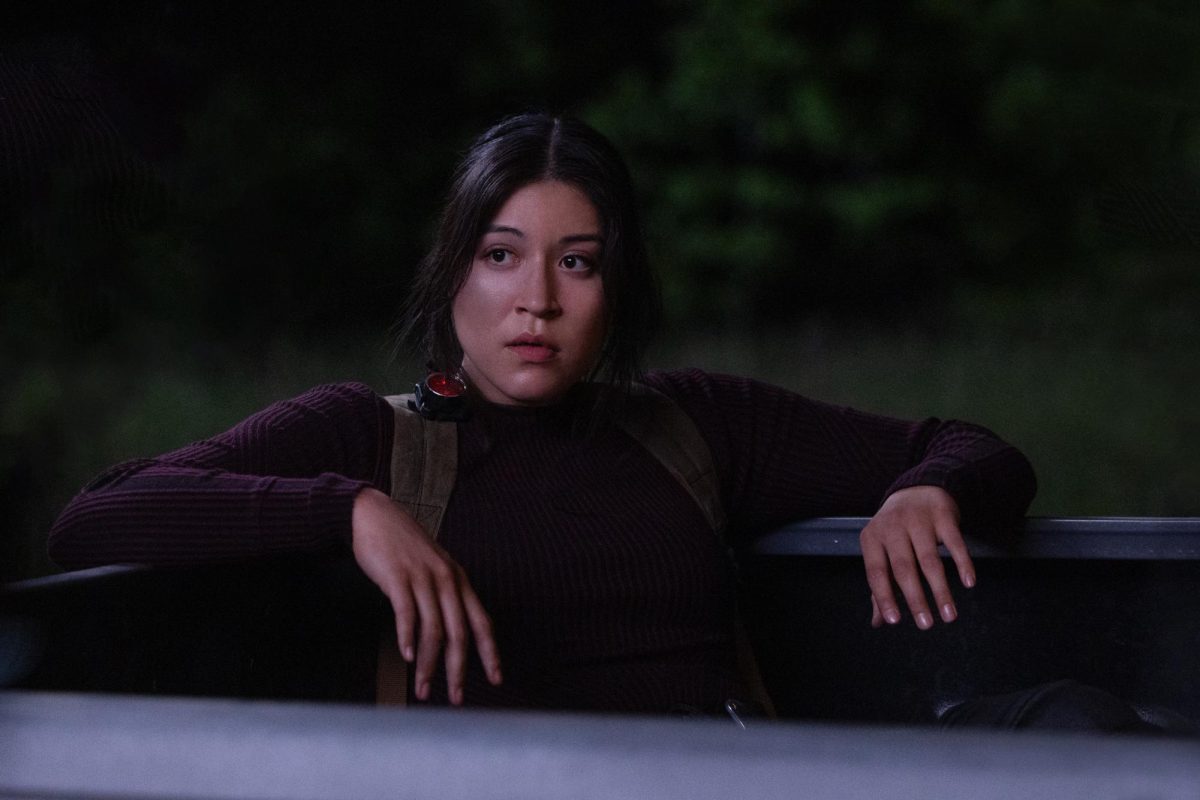For better or for worse, Kevin Feige and the team at Marvel Studios are reeling back their abundance of content for 2024. Hopefully, they will begin focusing on quality over quantity.
I personally like most of the shows and movies they have put out in the last couple of years, but the overabundance of content has become overwhelming. Despite being a major Marvel movie fan myself, I still am not fully caught up. I am about two or three episodes into the new “What If?” season and I haven’t had the time for the new “Echo” TV show. Once my schedule gets a little bit lighter, I will plan a watch marathon to get caught up. I genuinely am looking forward to it — especially “Echo.”
Echo stole my heart in the “Hawkeye” TV show. While she only had a small part, her story is one I have been looking forward to exploring in her new Disney+ show. Especially because her character will have implications for Kate Bishop, Daredevil and the future Young Avengers team-up that Kamala Khan, AKA Ms. Marvel, is seemingly organizing.
For those who are unfamiliar with the character of Echo, she first appeared in Daredevil comic #9, published in 1999, as the adopted daughter of the famous Marvel villain Kingpin. She sports a white handprint across her face to mirror the bloody handprint of her dying father and is often sent by Kingpin to hunt Daredevil down. Most notably, she is one of the few deaf Marvel characters and is also of Native American descent, particularly of the Cheyenne Nation. Her story is deeply intertwined with Matt Murdock’s Daredevil, and I am assuming she will play a role in his upcoming TV show.
I cannot attest to the quality of the show or its implications in the wider Marvel Cinematic Universe, but I can address a lot of the backlash I have seen. The biggest complaint I have seen on social media doesn’t have to do with the quality of the TV show, the acting or the CGI like many Marvel TV shows endure. But rather, many complain that Marvel has gone too “woke.” They are too “progressive” and too “liberal.” Some fans are complaining that a disabled, Native American woman superhero is far too unrealistic.
First and foremost, as I said above, the character of Echo has always been disabled and Native American. To those that complain about comic accuracy, Alaqua Cox, who plays Echo in the new TV show, is nearly as comic accurate as they come. She is both deaf and Native American, with the role of Echo being her first time on our TV screens. The only notable difference is that Cox has a prosthetic leg while comic book Echo does not. But to that I say — who cares? If you are truly so disturbed by her disability not being comic-accurate, then where was everybody when they took away Hawkeye’s disability for the last decade? He is deaf and wears hearing aids in the comic books — only in his TV show did they finally portray him with hearing aids 12 years after his character’s movie inception. Or perhaps people are disturbed by Echo’s disabilities themselves, and to that I question where these feelings were with the Winter Soldier and Daredevil, just to name a few. Bucky Barnes, AKA the Winter Soldier, is fully missing an arm and uses a prosthetic, albeit one made of vibranium, but a prosthetic nonetheless. And Daredevil, who plays a major role in Echo’s story and vice versa, is blind.
Marvel has always been “woke.” For decades, it has included and represented a wide range of races, genders, sexualities and disabilities. Throughout its pages, it has always engaged with current events and tackled politics. While Marvel has grown to include more diversity in their characters and comics over time, Marvel began its reign politically from the very beginning.
In 1939, Martin Goodman created Marvel Comics, but it wasn’t known as Marvel until the early ‘60s. But by 1941, Captain America was punching Nazis. Famously, Jack Kirby and Joe Simmons even had Captain America punch Hitler on the cover of an early Captain America issue. But this commentary was only the beginning. Marvel’s first Black superhero, the Black Panther, was introduced in 1966 and Northstar, Marvel’s first openly gay hero, came out in 1992. Marvel has tackled issues like the Cold War, government corruption and even 9/11 throughout multiple different issues and across character storylines.
Most Marvel movies focus on the fantastic. They focus on the major fights between the villains and heroes or exactly how the characters got their superpowers. They create a world beyond Earth, fully adding new countries and elements to the periodic table. But the MCU, just like Marvel Comics, is also a window into our real lives. It touches on real issues and is unafraid to do so, especially in recent years.
The show “The Falcon and Winter Soldier” dealt with race relations in America. Sam Wilson, AKA the Falcon, was handed the Captain America mantle by an elderly Steve Rogers, but chose to set the mantle aside and let Steve Roger’s legacy live on. Despite his wishes, the government handed the shield off to a white man, ultimately disrespecting Sam Wilson’s wishes and outright lying to him that it would be laid to rest. TFAWS also introduced Isaiah Bradley — another super soldier — to hold the Captain America mantle during the Korean War. But despite Steve Rogers’ legacy, Isaiah Bradley, a Black man, was forgotten by history and left broke and mistreated by the American government.
TFAWS is probably the most political and “woke” product Marvel has put out to date, and yet some can easily avoid its political nature if they’re really truly that disturbed by its messaging. At its core, TFAWS is about Sam and Bucky fighting a bunch of super soldiers, just like Echo is about a deaf superhero running from Kingpin’s organization back to her hometown. It doesn’t have to be more complicated than this. You can ignore the cultural representation or the difficult conversations and connections if you really want to.
As a political science student, believe me when I say that not everything needs to be political. I am constantly thinking about capitalism’s effect on the environment, social hierarchies and the upcoming presidential election. I do appreciate when I am able to sit down and enjoy media that isn’t inherently political. But this isn’t the case with Marvel Studios. Politically charged media can easily be ignored and pushed to the side if you really do not want to interact with such material. But pretending like Marvel hasn’t always been political is a disservice to the legacies of Jack Kirby, Joe Simmons and even our beloved Stan Lee who created these characters to fight animosity. It is a disservice to Marvel Comics in general, who are consistently creating spaces for minorities and disabled heroes.
I implore you not to ignore the political implications of Marvel. I personally believe that these interpretations make many of the more recent movies and TV shows more engaging than just a bunch of poorly animated fight sequences. Villains with good intentions, questioning of morality, consequences of hero’s actions and race relations make for interesting stories and interesting characters. But even if you pretend like political implications, hierarchies and particular relationships are not constantly at play in the Marvel media you consume, it does not negate the fact that they have always been a part.
Marvel is political, and they will make political content. It pains me to even argue that representing diverse characters is political in the first place. If the idea of a disabled Native American superhero or a Black Captain America is really that upsetting, perhaps you need to do some soul searching as to why. Perhaps consuming media in a “political” way will be beneficial to you after all.
Livia LaMarca is the assistant editor of the opinions desk who misses using the Oxford comma. She mostly writes about American political discourse, US pop culture and social movements. Write to her at [email protected] to share your own opinions!



